Abstract
Uptake of exogenous biotin by two Escherichia coli biotin prototroph strains, K-12 and Crookes, appeared to involve incorporation at a fixed number of binding sites located at the cell membrane. Incorporation was characterized as a binding process specific for biotin, not requiring energy, and stimulated by acidic pH. Constant saturation quantities of exogenous biotin were incorporated by these cells, and the amounts, which were titrated, depended on whether the cells were resting or dividing. Resting cells incorporated exogenous biotin amounting to 2% of their total intracellular biotin content. Fifty percent of the exogenous biotin was incorporated into their free biotin fraction, and 50% was incorporated into their bound biotin fraction. On the other hand, dividing cells incorporated exogenous biotin into all of their intracellular sites, 88% going into the intracellular-bound biotin fraction, and 12% going into the free biotin fraction. Calculations suggested that each cell contained approximately 3,000 binding sites for biotin. It was postulated that biotin incorporation sites might have been components of acetyl coenzyme A carboxylase located at or near the membrane.
Full text
PDF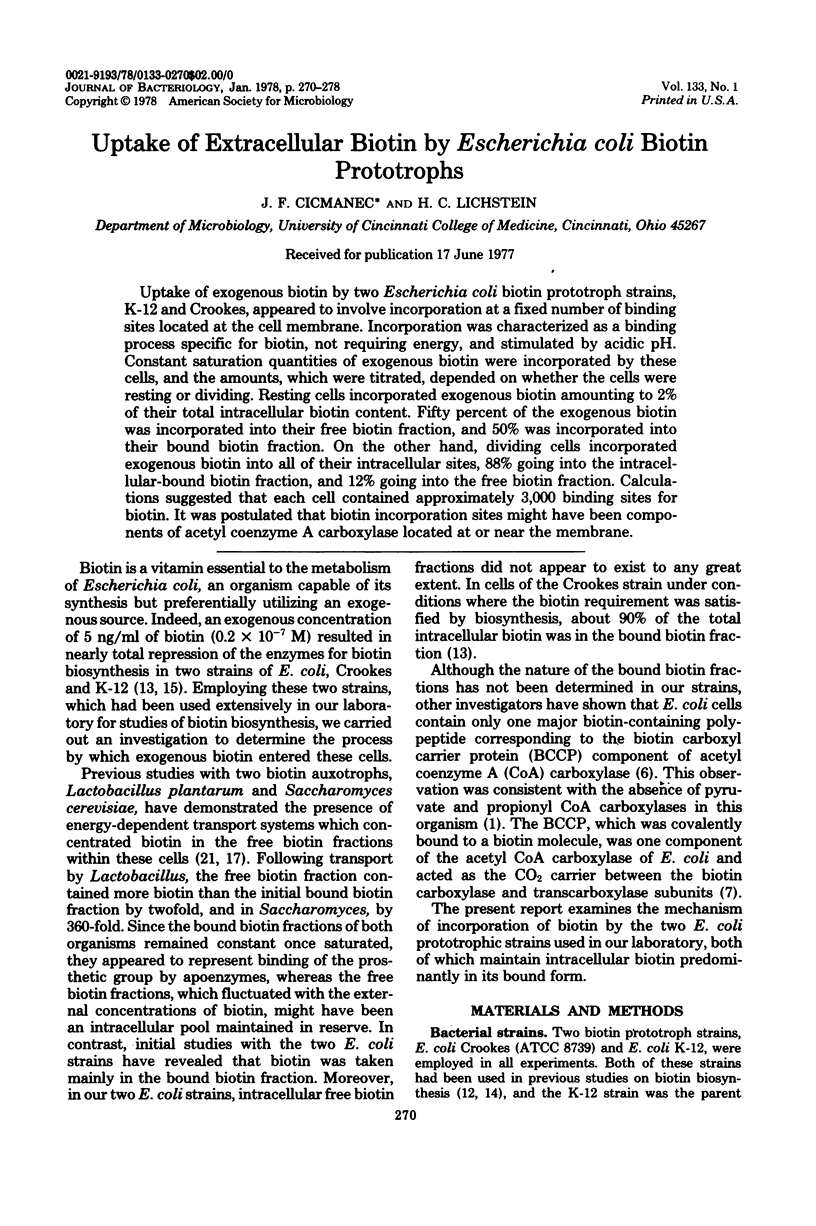
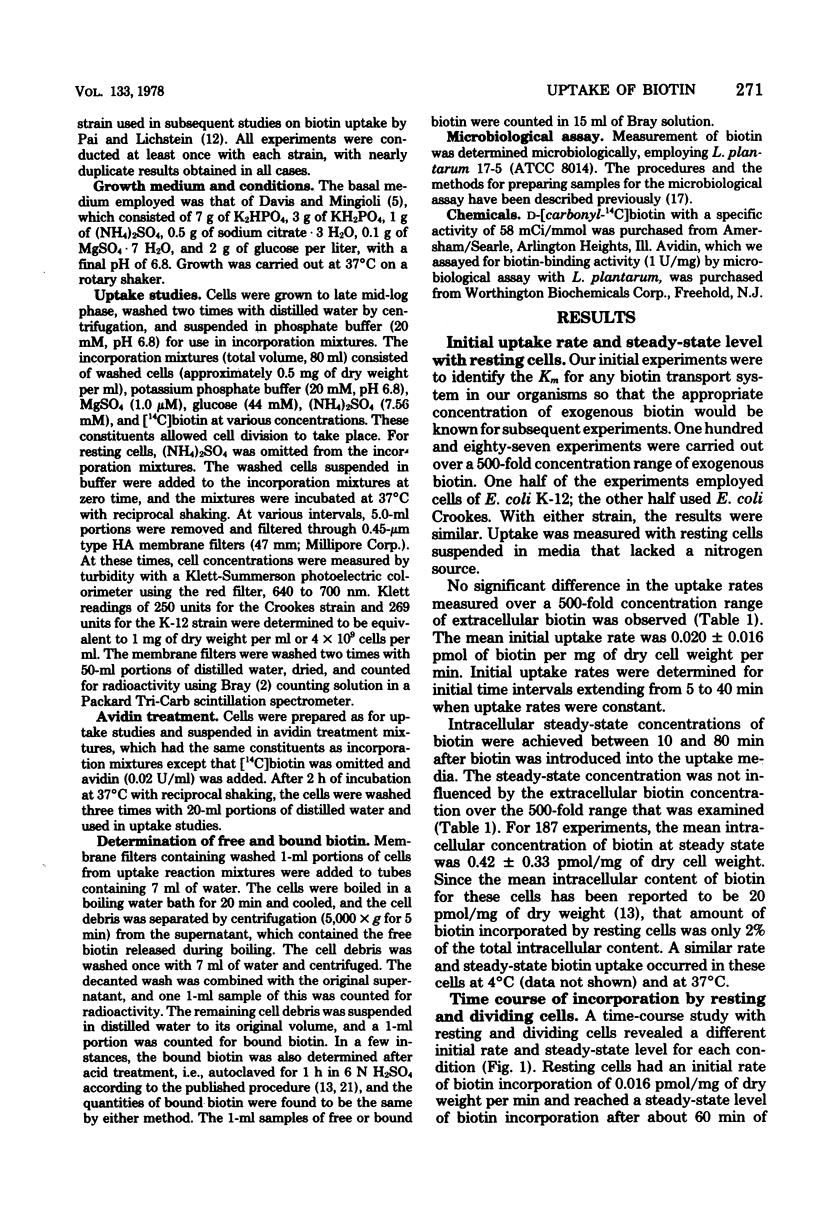
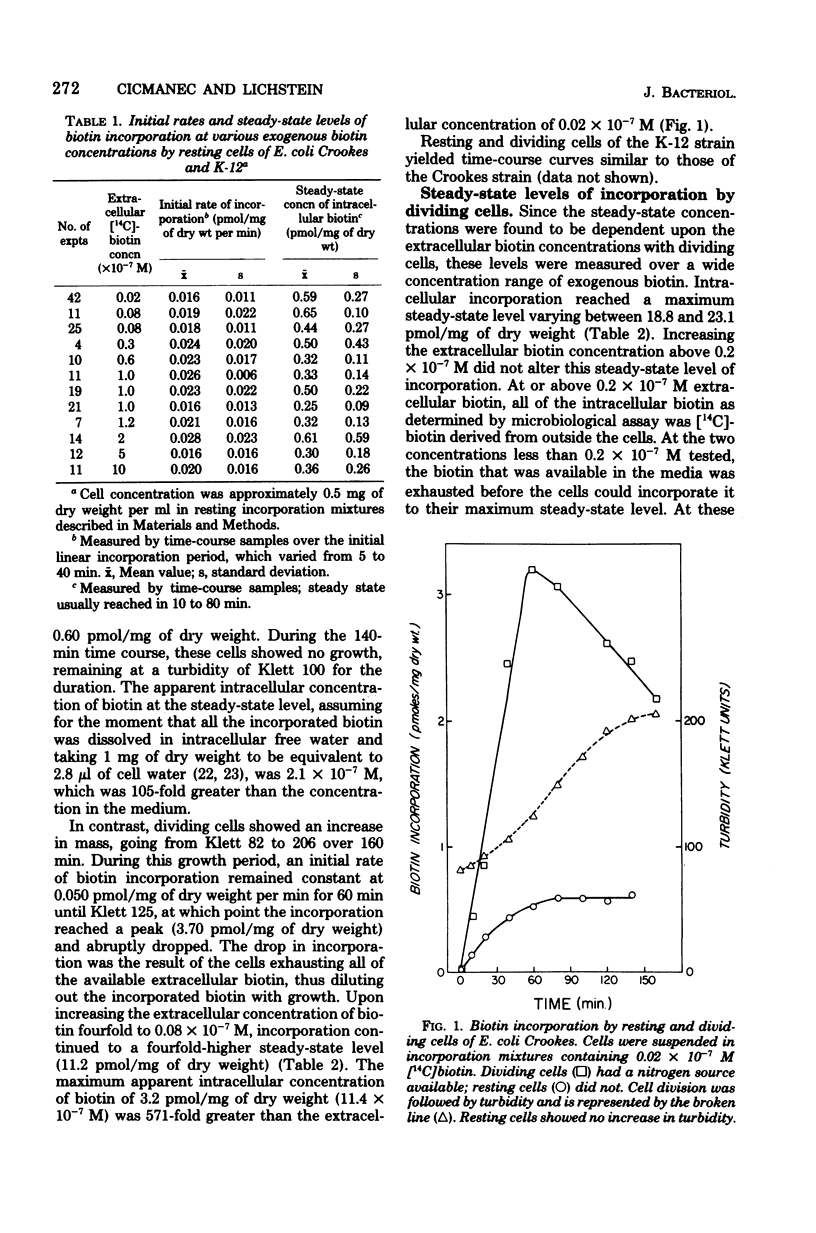
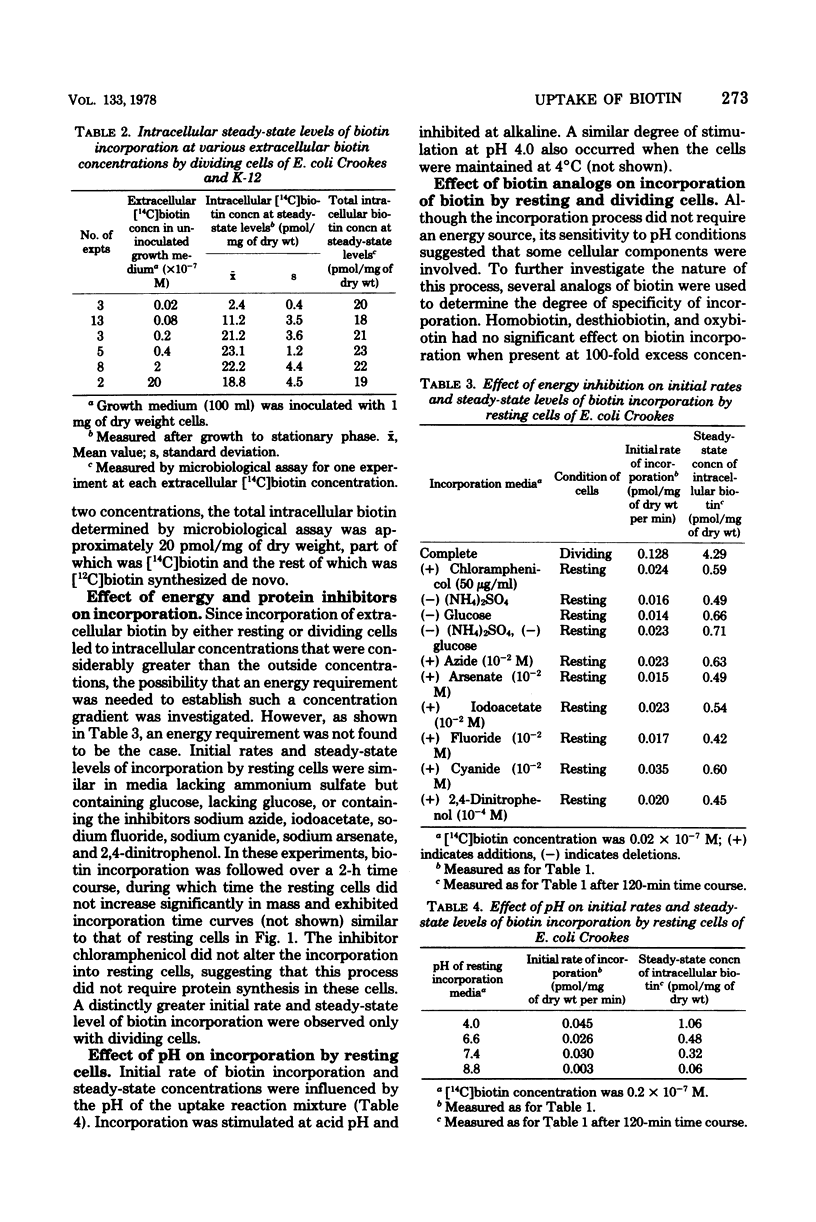
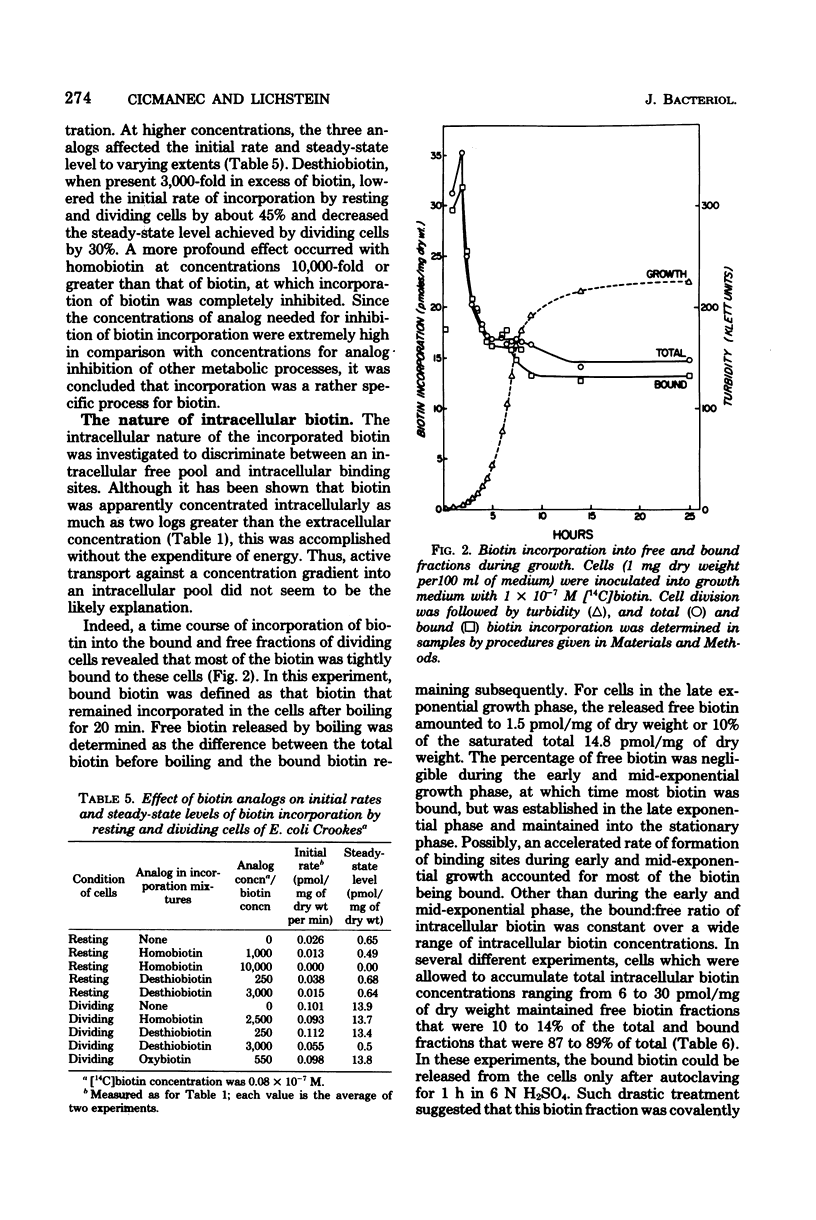
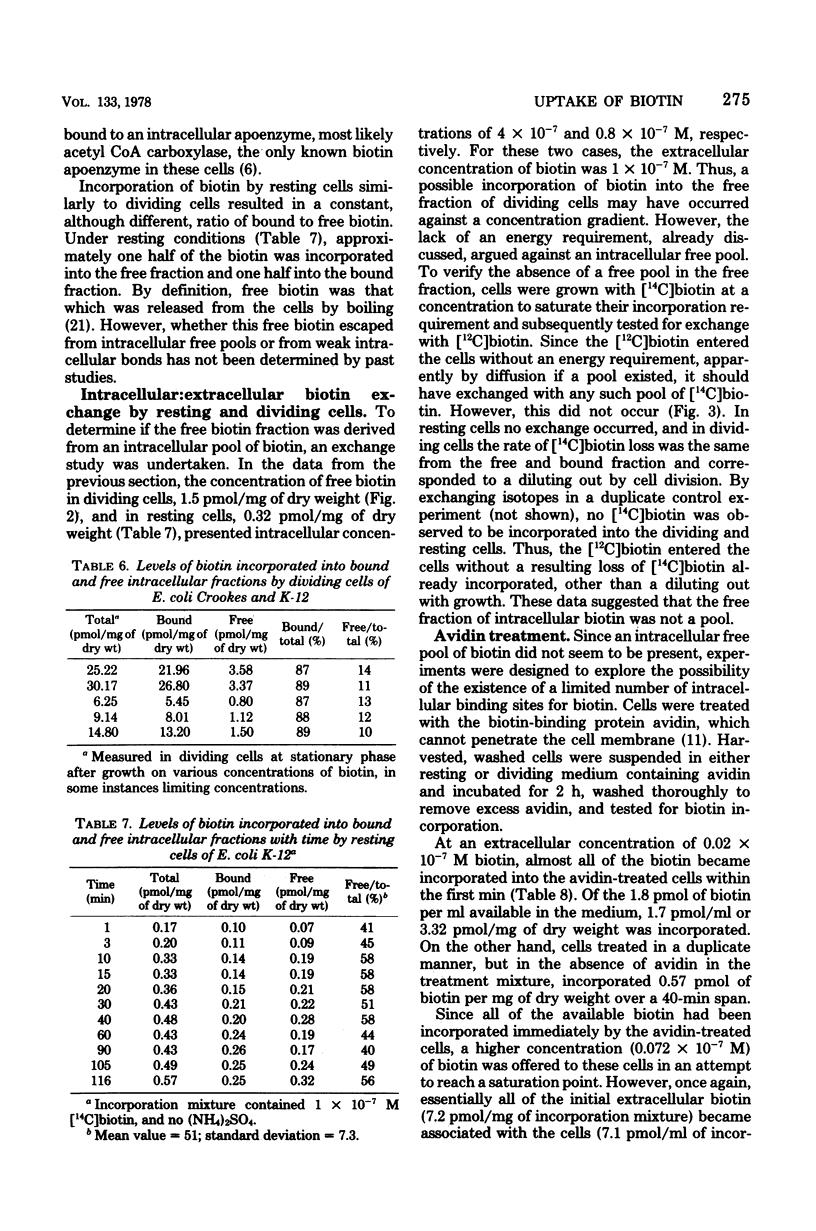
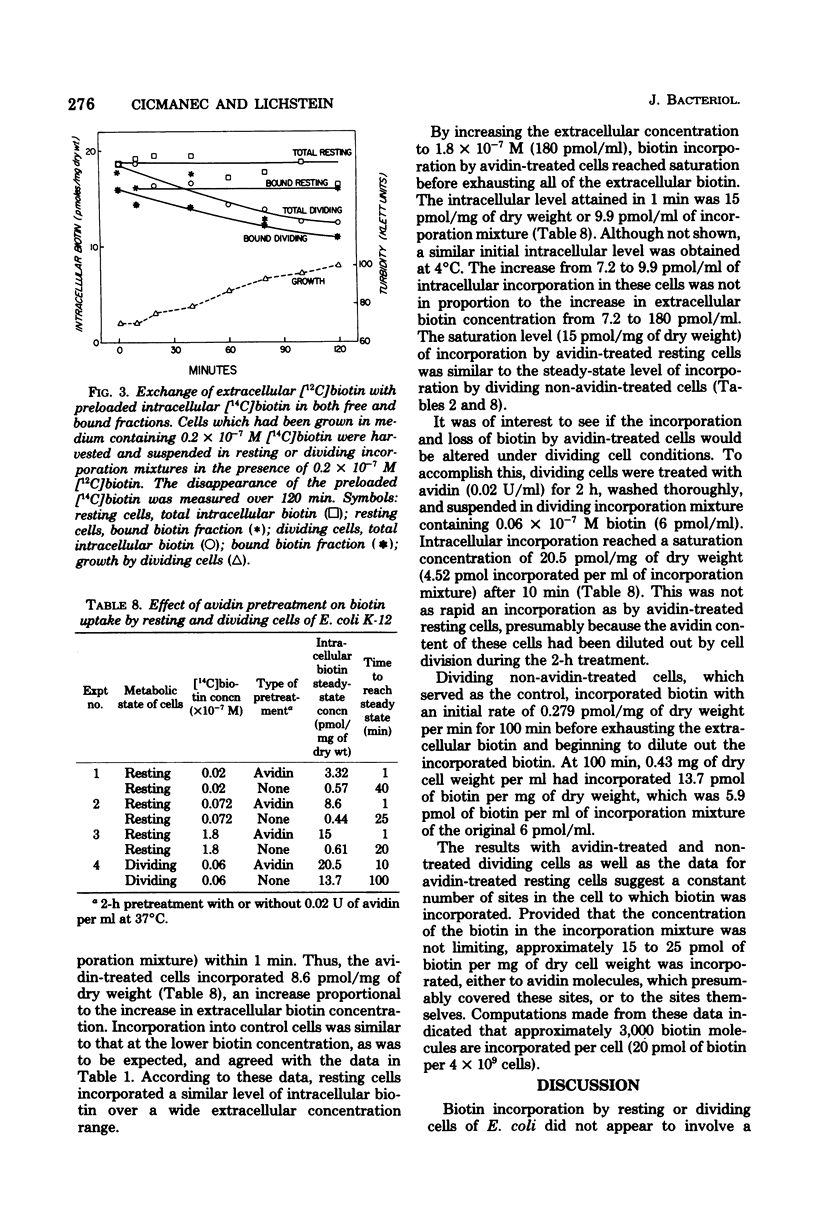
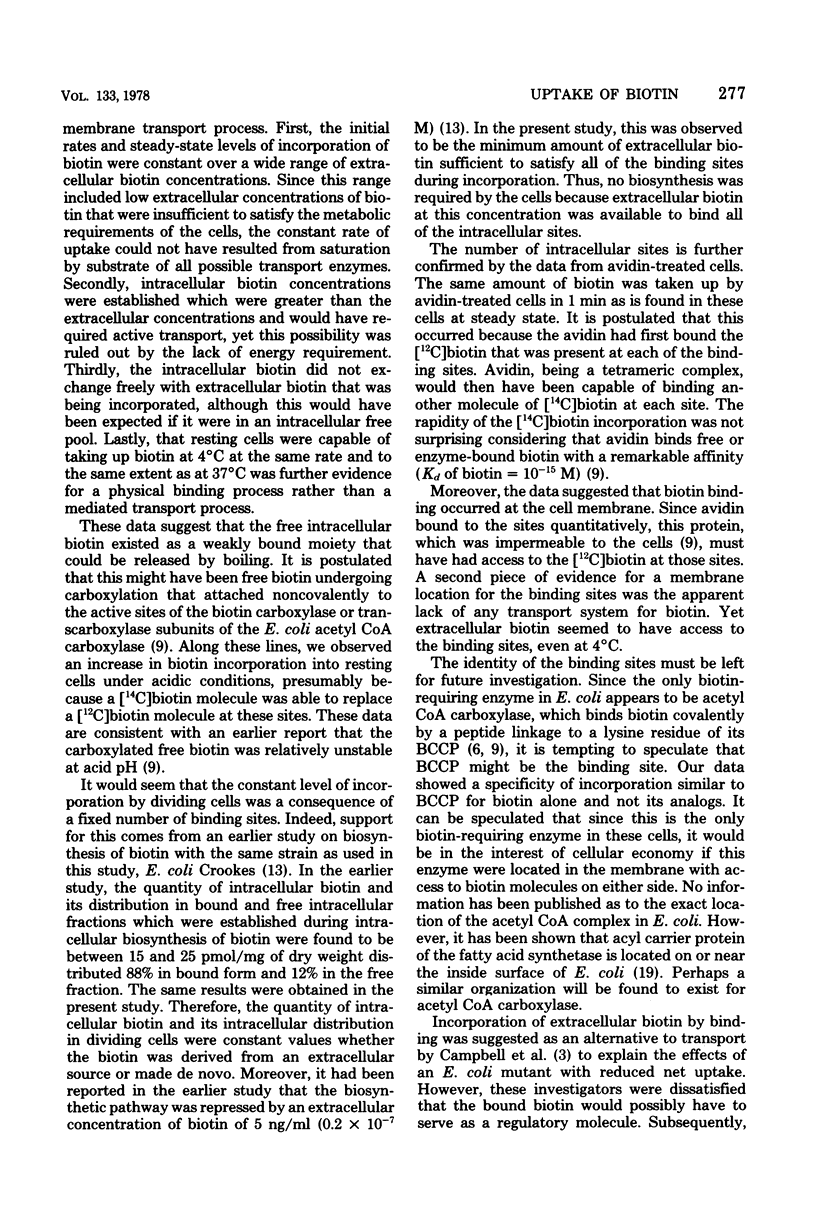
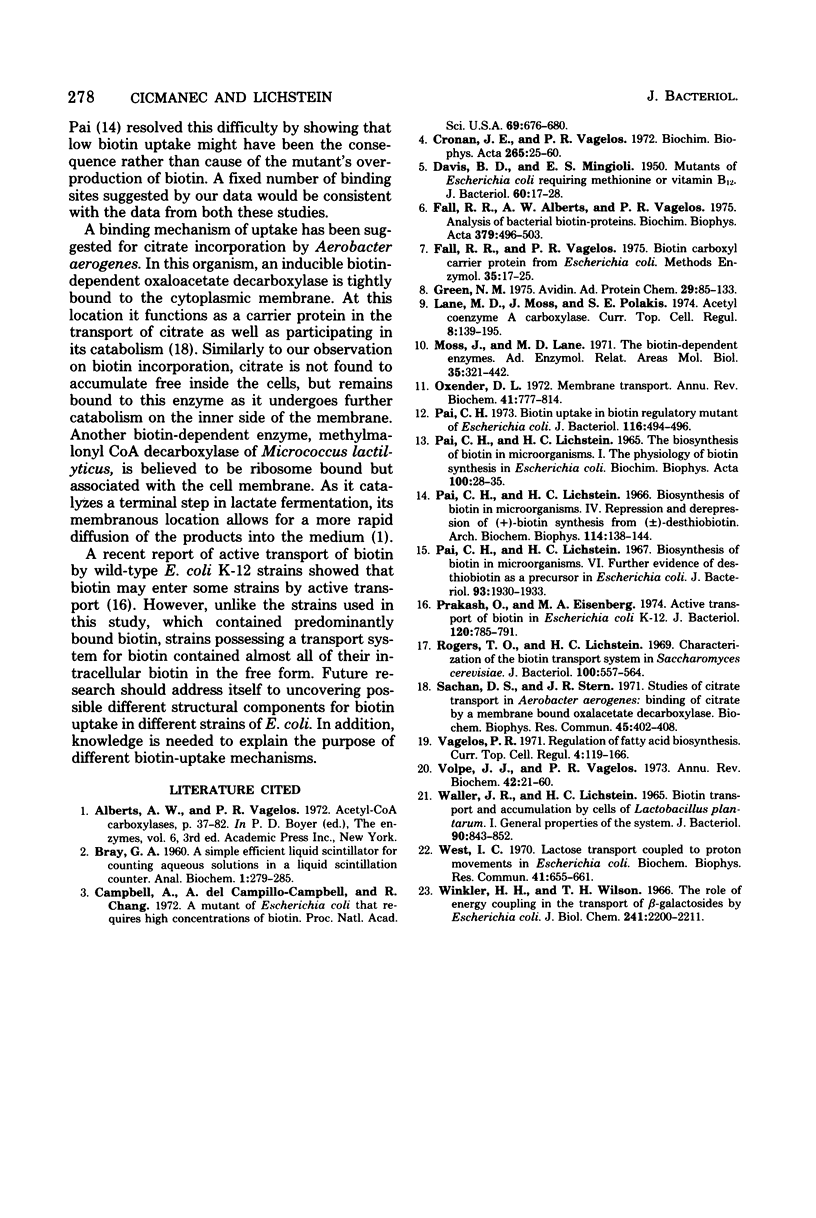
Selected References
These references are in PubMed. This may not be the complete list of references from this article.
- Campbell A., Del Campillo-Campbell A., Chang R. A mutant of Escherichia coli that requires high concentrations of biotin. Proc Natl Acad Sci U S A. 1972 Mar;69(3):676–680. doi: 10.1073/pnas.69.3.676. [DOI] [PMC free article] [PubMed] [Google Scholar]
- Cronan J. E., Vagelos P. R. Metabolism and function of the membrane phospholipids of Escherichia coli. Biochim Biophys Acta. 1972 Feb 14;265(1):25–60. doi: 10.1016/0304-4157(72)90018-4. [DOI] [PubMed] [Google Scholar]
- DAVIS B. D., MINGIOLI E. S. Mutants of Escherichia coli requiring methionine or vitamin B12. J Bacteriol. 1950 Jul;60(1):17–28. doi: 10.1128/jb.60.1.17-28.1950. [DOI] [PMC free article] [PubMed] [Google Scholar]
- Fall R. R., Alberts A. W., Vagelos P. R. Analysis of bacterial biotin-proteins. Biochim Biophys Acta. 1975 Feb 27;379(2):496–503. doi: 10.1016/0005-2795(75)90156-7. [DOI] [PubMed] [Google Scholar]
- Fall R. R., Vagelos P. R. Biotin carboxyl carrier protein from Escherichia coli. Methods Enzymol. 1975;35:17–25. doi: 10.1016/0076-6879(75)35133-1. [DOI] [PubMed] [Google Scholar]
- Green N. M. Avidin. Adv Protein Chem. 1975;29:85–133. doi: 10.1016/s0065-3233(08)60411-8. [DOI] [PubMed] [Google Scholar]
- Lane M. D., Moss J., Polakis S. E. Acetyl coenzyme A carboxylase. Curr Top Cell Regul. 1974;8(0):139–195. [PubMed] [Google Scholar]
- Moss J., Lane M. D. The biotin-dependent enzymes. Adv Enzymol Relat Areas Mol Biol. 1971;35:321–442. doi: 10.1002/9780470122808.ch7. [DOI] [PubMed] [Google Scholar]
- Oxender D. L. Membrane transport. Annu Rev Biochem. 1972;41(10):777–814. doi: 10.1146/annurev.bi.41.070172.004021. [DOI] [PubMed] [Google Scholar]
- PAI C. H., LICHSTEIN H. C. THE BIOSYNTHESIS OF BIOTIN IN MICROORGANISMS. I. THE PHYSIOLOGY OF BIOTIN SYNTHESIS IN ESCHERICHIA COLI. Biochim Biophys Acta. 1965 Apr 12;100:28–35. doi: 10.1016/0304-4165(65)90423-x. [DOI] [PubMed] [Google Scholar]
- Pai C. H. Biotin uptake in biotin regulatory mutant of Escherichia coli. J Bacteriol. 1973 Oct;116(1):494–496. doi: 10.1128/jb.116.1.494-496.1973. [DOI] [PMC free article] [PubMed] [Google Scholar]
- Pai C. H., Lichstein H. C. Biosynthesis of biotin in microorganisms. IV. Repression and derepression of (+ -)-biotin synthesis from (+)-desthiobiotin. Arch Biochem Biophys. 1966 Apr;114(1):138–144. doi: 10.1016/0003-9861(66)90314-6. [DOI] [PubMed] [Google Scholar]
- Pai C. H., Lichstein H. C. Biosynthesis of biotin in microorganisms. VI. Further evidence for desthiobiotin as a precursor in Eschericia coli. J Bacteriol. 1967 Dec;94(6):1930–1933. doi: 10.1128/jb.94.6.1930-1933.1967. [DOI] [PMC free article] [PubMed] [Google Scholar]
- Prakash O., Eisenberg M. A. Active transport of biotin in Escherichia coli K-12. J Bacteriol. 1974 Nov;120(2):785–791. doi: 10.1128/jb.120.2.785-791.1974. [DOI] [PMC free article] [PubMed] [Google Scholar]
- Rogers T. O., Lichstein H. C. Characterization of the biotin transport system in Saccharomyces cerevisiae. J Bacteriol. 1969 Nov;100(2):557–564. doi: 10.1128/jb.100.2.557-564.1969. [DOI] [PMC free article] [PubMed] [Google Scholar]
- Sachan D. S., Stern J. R. Studies of citrate transport in Aerobacter aerogenes: binding of citrate by a membrane bound oxalacetate decarboxylase. Biochem Biophys Res Commun. 1971 Oct 15;45(2):402–408. doi: 10.1016/0006-291x(71)90833-3. [DOI] [PubMed] [Google Scholar]
- Volpe J. J., Vagelos P. R. Saturated fatty acid biosynthesis and its regulation. Annu Rev Biochem. 1973;42:21–60. doi: 10.1146/annurev.bi.42.070173.000321. [DOI] [PubMed] [Google Scholar]
- Waller J. R., Lichstein H. C. Biotin transport and accumulation by cells of Lactobacillus plantarum. I. General properties of the system. J Bacteriol. 1965 Oct;90(4):843–852. doi: 10.1128/jb.90.4.843-852.1965. [DOI] [PMC free article] [PubMed] [Google Scholar]
- West I. C. Lactose transport coupled to proton movements in Escherichia coli. Biochem Biophys Res Commun. 1970 Nov 9;41(3):655–661. doi: 10.1016/0006-291x(70)90063-x. [DOI] [PubMed] [Google Scholar]
- Winkler H. H., Wilson T. H. The role of energy coupling in the transport of beta-galactosides by Escherichia coli. J Biol Chem. 1966 May 25;241(10):2200–2211. [PubMed] [Google Scholar]


